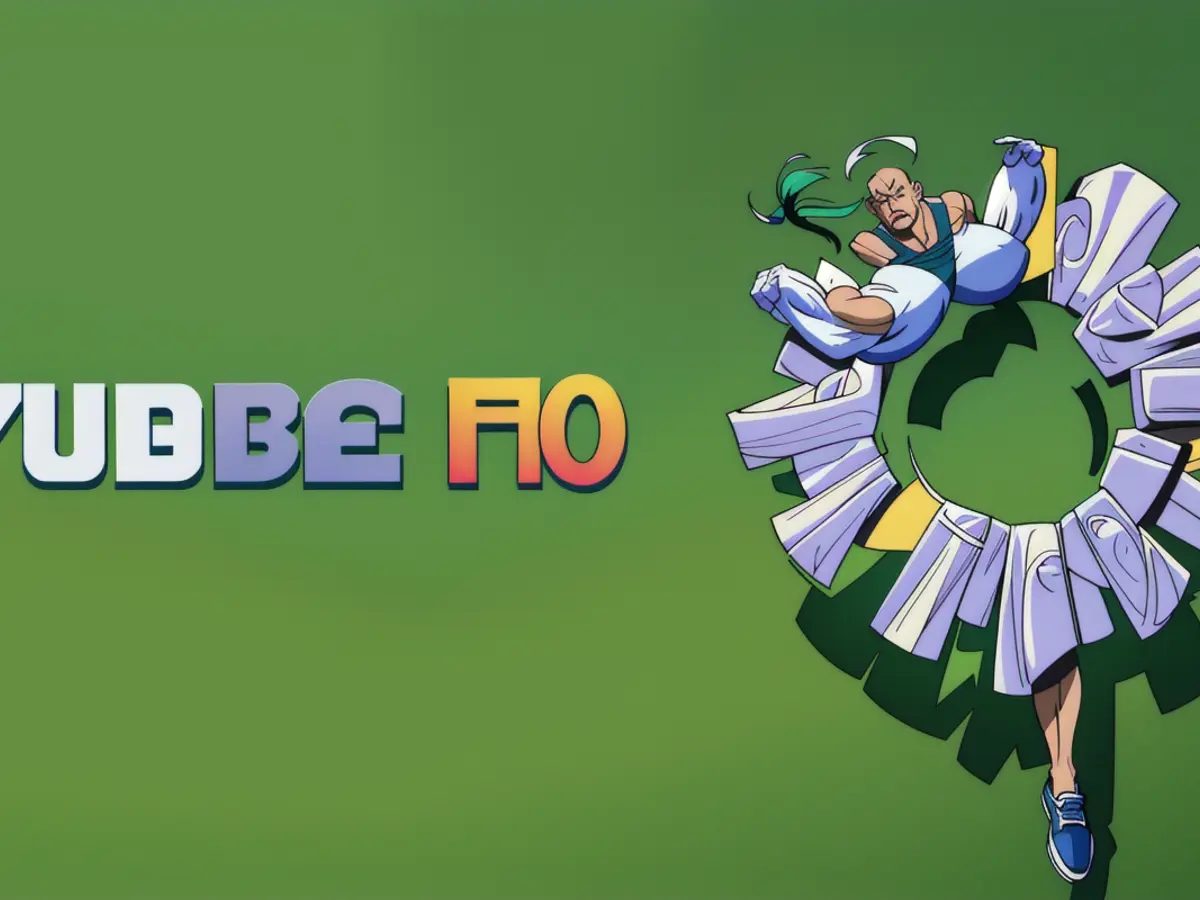Green Party Aims to Be a "Stability Beacon": Countering Black-Red Critics
Critics voice concerns over the black-red coalition's durability - The Green Party seeks to establish a foundation for stability: Critique of the Black and Red parties
In the aftermath of the federal election, the Greens, as per co-chair Franziska Brantner, see themselves as a vital force for progress and a "stability beacon" in opposition. Brantner delivered this statement at the state party conference of the Hessian Greens in Marburg, which was attended by over 600 members. The meeting took place in historic locomotive sheds, with the Hessian Greens electing a new state executive committee later in the day.
Just a day prior, CDU, SPD, and Greens had agreed on a planned multi-billion-euro financial package for defense, infrastructure, and climate neutrality. Brantner accused CDU leader and potential future chancellor Friedrich Merz of presenting the Greens with an unfinished bill—"with which CDU, CSU, and SPD want to secure play money for tax cuts and clientelistic politics." In grueling negotiations, the Greens managed to stipulate that defense and security provisions would be expanded to include cybersecurity moving forward.
Brantner: Climate Action a "Blind Spot" for Black-Red
The crucial matter of climate action was a "complete blind spot" for the "small coalition"—as the Greens refer to Black-Red, according to Brantner. The fact that 100 billion euros are now allocated from the special fund for the climate and transformation fund suggests the Greens' influence. "No longer will money cause climate action to fail in the small coalition; only political will can," Brantner asserted.
Before the party conference, Anna Luhrmann, Julia Frank, and Tobias Dondelinger announced their bids for the future dual leadership of the Hessian Greens. Luhrmann, a Green federal MP and simultaneously State Minister for Europe and Climate in the Foreign Office, played a key role in leading the Greens' state list during the federal election alongside former federal chairman Omid Nouripour. The party received 11.6% of the votes in the election.
Luhrmann: Greens taking a Constructive-Critical Approach
Luhrmann also emphasized that the Greens have discovered their role as a "constructively critical opposition" post-election. CDU leader Merz had believed, "he'd present something to the Greens, and we'd take it," according to Luhrmann. "State political responsibility doesn't mean saying yes to every absurdity," she added.
- Federal Election
- Franziska Brantner
- CDU
- Marburg
- Climate
- Europe
- Anna Luhrmann
- SPD
- Leader
- Friedrich Merz
- Hesse
Insights
The Green Party's approach to acting as a "stability beacon" in opposition following the federal election, with regard to climate action and scrutiny of the CDU and SPD, isn't fully detailed in the data. However, we can discern some aspects of their position through broader trends and policies:
- Climate Action: The Greens are known for their strong support for environmental and climate protection policies. They would likely continue advocating for robust climate measures, potentially criticizing the CDU and SPD if they perceive insufficient attention to these issues.
- Opposition Role: As an opposition party, the Greens might shift socially to the left, as evidenced by Die Linke's strategic considerations[1]. This could involve focusing on social justice and environmental policies to differentiate themselves from governing parties.
- Criticism of CDU and SPD: The Greens have historically criticized CDU's and SPD's environmental policies when they are considered inadequate. Given the CDU's and SPD's plans to boost defense spending and potentially relax fiscal constraints for infrastructure, the Greens might criticize these moves if they perceive them as detracting from climate protection or social welfare.
- Coalition Dynamics: The Greens' participation in a potential coalition, or their support for major policy initiatives, such as the €1 trillion spending plan on defense and infrastructure, would hinge on aligning with their core values and policies[5]. They might push for significant environmental and social safeguards in any agreement.
In summary, while specific details on the Greens' stance as a "stability beacon" in opposition aren't provided, they are likely to maintain a strong focus on climate action and social justice, possibly criticizing the CDU and SPD if these parties fail to meet their environmental and social standards.
- The Commission has been asked by the Greens, as a vital force for progress, to submit a proposal for a directive on the protection of the environment, given their role as a "stability beacon" in opposition.
- In her presentation at the state party conference, Brantner, co-chair of the Greens, criticized the CDU leader Friedrich Merz for presenting an unfinished bill, suggesting that it is merely a tool for securing tax cuts and clientelistic politics.
- Following the federal election, Luhrmann, a Green federal MP, stated that the Greens have embraced their role as a "constructively critical opposition," scrutinizing the CDU and SPD's policies to ensure they align with their core values, particularly focusing on climate and social justice issues.







